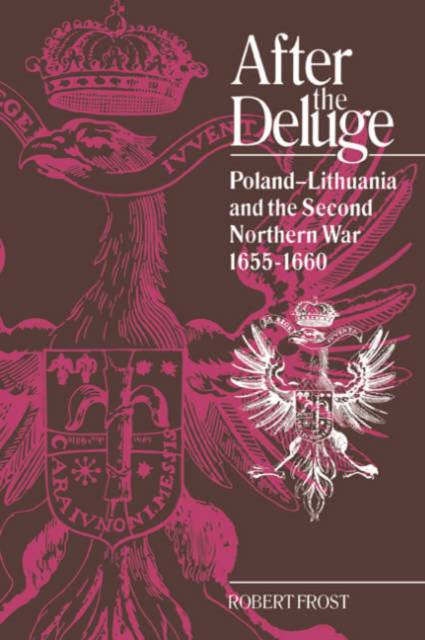
- Afhalen na 1 uur in een winkel met voorraad
- Gratis thuislevering in België vanaf € 30
- Ruim aanbod met 7 miljoen producten
- Afhalen na 1 uur in een winkel met voorraad
- Gratis thuislevering in België vanaf € 30
- Ruim aanbod met 7 miljoen producten
Zoeken
After the Deluge
Poland-Lithuania and the Second Northern War, 1655 1660
Robert I Frost, Frost Robert I
€ 73,95
+ 147 punten
Uitvoering
Omschrijving
The Swedish invasion of 1655, known to Poles ever since as the 'Swedish deluge', provoked the political and military collapse of the Polish-Lithuanian Commonwealth, the second-largest state in Europe. Robert Frost examines the reasons for Poland's fall and the conduct of the war by the Polish government, and addresses the crucial question of why, despite widespread recognition of the shortcomings of the political system, subsequent attempts at reform failed. War has long been seen as crucial to the development of more effective systems of government in Europe during the seventeenth century, but studies usually concentrate on states which responded successfully to the challenges. Much can be learned from those that failed, and the paucity of English-language material on this important conflict means that After the Deluge will appeal to a broad audience among historians of Poland, Germany, Scandinavia, Russia, and early modern Europe in general.
Specificaties
Betrokkenen
- Auteur(s):
- Uitgeverij:
Inhoud
- Aantal bladzijden:
- 236
- Taal:
- Engels
- Reeks:
Eigenschappen
- Productcode (EAN):
- 9780521544023
- Verschijningsdatum:
- 11/03/2004
- Uitvoering:
- Paperback
- Formaat:
- Trade paperback (VS)
- Afmetingen:
- 156 mm x 229 mm
- Gewicht:
- 362 g

Alleen bij Standaard Boekhandel
+ 147 punten op je klantenkaart van Standaard Boekhandel
Beoordelingen
We publiceren alleen reviews die voldoen aan de voorwaarden voor reviews. Bekijk onze voorwaarden voor reviews.











